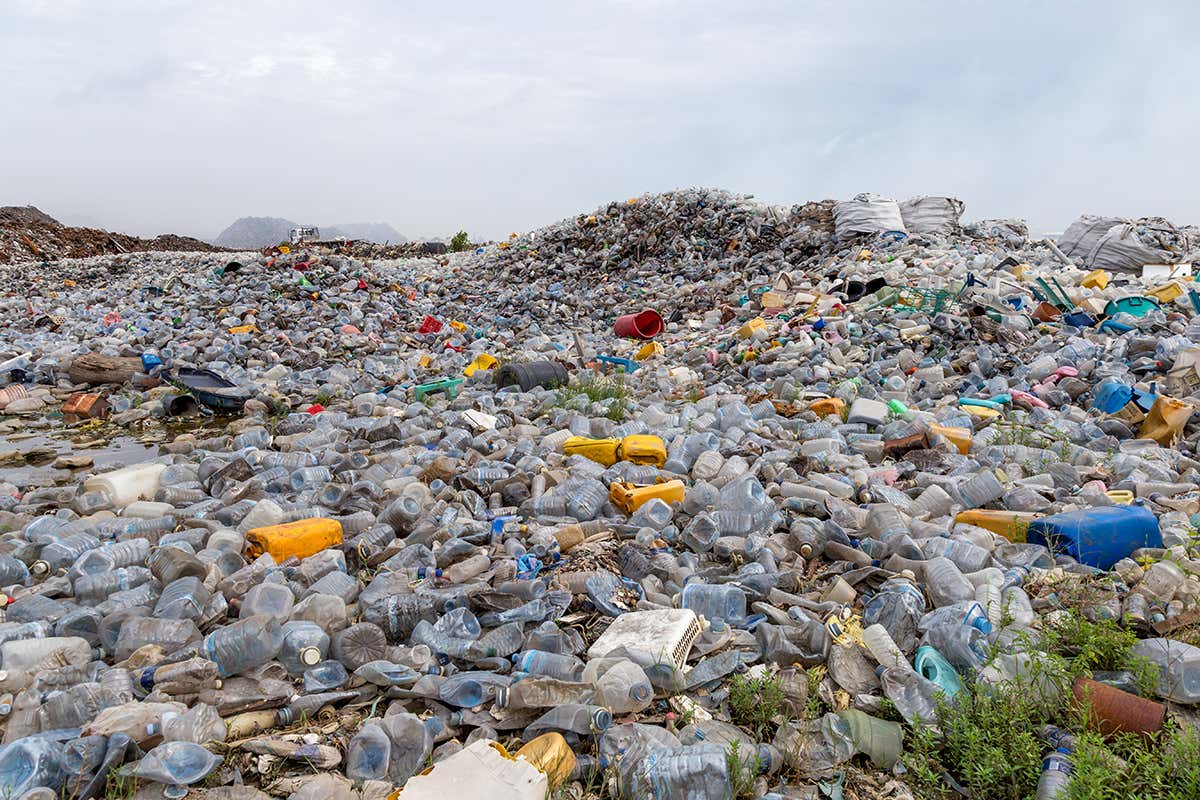A new type of plastic that can be easily broken down into its chemical building blocks and reassembled into high-quality products could reduce the amount of plastic waste ending up in landfill.
More than 300 million tonnes of plastic are produced globally each year and only a small fraction – about 10 per cent in the US, for instance – is recycled. The rest is tipped into landfill, incinerated or leaked into the environment.
One reason why so little plastic is recycled is because it is hard to break down, and the processes typically used to remould old plastic weaken its chemical structure. As a result, recycled plastic is normally only used to make low-value products, such as outdoor benches and bins.
To address this problem, Eugene Chen at Colorado State University and his colleagues developed a plastic that is able to maintain its original qualities when recycled.
The material, called PBTL, is made by joining together chemical building blocks called bicyclic thiolactones. PBTL has excellent strength, toughness and stability, says Chen, meaning it could potentially be used to make plastic packaging, sports equipment, car parts, construction materials and other products.
The researchers found that PBTL can be easily recycled by heating it at 100°C in the presence of a chemical catalyst for 24 hours. This breaks the plastic cleanly into its original building blocks, which can then be reassembled into new high-quality PBTL.
One challenge, however, is that PBTL can only be broken down and remoulded in this way when it is on its own, says Chen. That means it would need to be separated from other types of plastic in mixed plastic waste before it could be recycled, he says.

